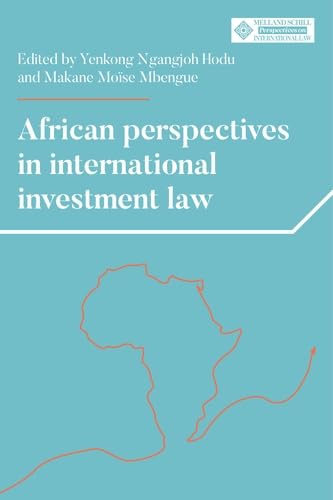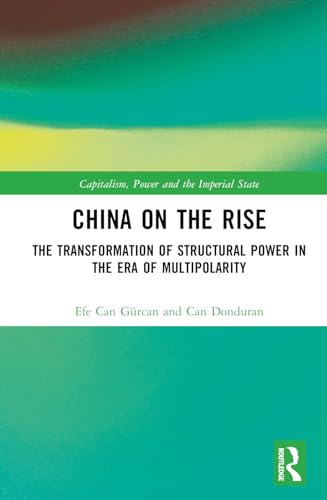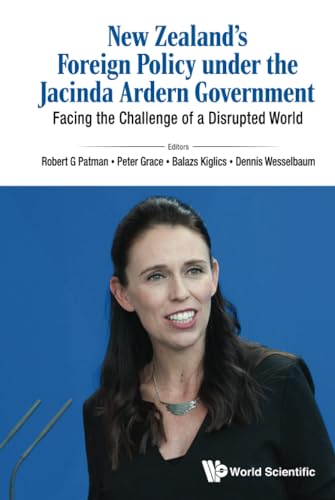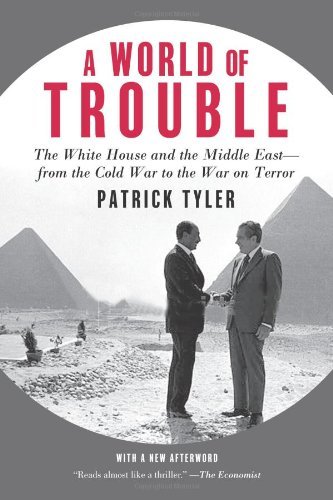Categories
International Relations

African perspectives in international investment law
Yenkong Ngangjoh Hodu

China on the Rise
Efe Can Gürcan, Can Donduran

The Oxford Handbook of International Studies Pedagogy
Heather A. Smith
"This volume brings together world class scholars to explore International Studies pedagogy. The first section of the volume focuses on worldviews and teaching worlds. The contributions within this section offer an exposure to different worldviews and methods that enable a more diverse set of considerations when thinking about the international. Chapters in this section demonstrate a set of pedagogical practices that can allow non-western perspectives to emerge and to be valued. This maintains import beyond simply enabling broader literatures, contexts, and experiences to enrich the study of the international, it also is a critical component of adopting a set of humanizing pedagogies where care, inclusion, and compassion are modeled. At the heart of some of the contributions is a recognition that being more thoughtful and engaging of our students in constructing the learning environment is fundamental to enabling a broader set of worldviews and teaching worlds to emerge. The second section of the volume focuses on teaching and learning inside and outside the classroom. The chapters in this section fundamentally talk about strategies, and particular experiences that people have had, and how they relate those experiences either to their own their own positions or how they've understood them to be effective. And while the chapters tend to focus on practice it is also apparent how contributors embed their work in a set of values around equity, diversity, inclusion, and reconciliation. Ultimately, accepting the way we teach matters, this volume seeks to empower those teaching international studies to engage their students and prepare them to understand and work within a complicated and challenging international system"--

New Zealand's Foreign Policy Under The Jacinda Ardern Government: Facing The Challenge Of A Disrupted World
Robert G. Patman, Dennis Wesselbaum, Balazs Kiglics, Peter Grace
The purpose of this book is to examine the foreign policy of Jacinda Ardern's New Zealand Government between 2020 and early 2023 when the COVID-19 pandemic intersected with an evolving and often tumultuous post-Cold War global environment. This context witnessed the erosion of an international rules-based order and the renewal of great power competition. In particular, the Indo-Pacific has become a contested strategic space, which impacted on New Zealand's foreign policy interests. As a self-proclaimed small state, New Zealand faced distinct the Ardern Government formulated a distinctive foreign policy that drew on the success of its handling of the pandemic as well as Aotearoa New Zealand's indigenous values, and emphasised the importance of a good international reputation, strong diplomatic networks, and multilateral cooperation to maintain and grow its influence. This interdisciplinary volume brings together academics, policymakers and practitioners and provides essential reading for anyone interested in how relatively small states such as New Zealand can navigate significant foreign policy challenges in an increasingly complex and contested system of international relations. Advanced undergraduate and graduate students, researchers and practitioners in the fields of New Zealand Foreign Policy, International Relations, and Geopolitics.

China’s Health Silk Road: Vaccine Diplomacy and Health Governance
Gerald Chan
In the fourth instalment of his ‘Belt and Road Initiative’ series, Gerald Chan provides a critical analysis of China’s vaccine diplomacy. Locating it within China’s wider infrastructure development strategy, Chan deploys geo-developmentalism as a theoretical tool to analyse its contribution to a new global health order, particularly with the pandemic pushing the country to the forefront of vaccine exportation. This timely book considers the contention between patient rights and patent rights, and the position of China in this debate as a relative latecomer to the global health game. Chan covers the infrastructural and digital innovations involved in recent health initiatives; moving on to unravel Sino-US rivalry and what this means for global health development; and assess the export of healthcare to Africa. Ultimately, this innovative study argues that China’s tilt towards providing life saving drugs over the rights of patent holders will lead to better healthcare for the global poor. Providing a fresh perspective on China’s unfolding diplomatic strategies, China’s Health Silk Road will appeal to students and scholars of international relations, global development, Asian politics and health policy. Furthermore, it will prove crucial reading for policy-makers and think tank analysts looking to better understand Sino-American relations and global health.

A World Of Trouble: The White House and the Middle East- from the Cold War to the War on Terror
Patrick Tyler
The White House and the Middle East—from the Cold War to the War on Terror The Middle East is the beginning and the end of U.S. foreign policy: events there influence our alliances, make or break presidencies, govern the price of oil, and draw us into war. But it was not always so—and as Patrick Tyler shows in this thrilling chronicle of American misadventures in the region, the story of American presidents’ dealings there is one of mixed motives, skulduggery, deceit, and outright foolishness, as well as of policymaking and diplomacy. Tyler draws on newly opened presidential archives to dramatize the approach to the Middle East across U.S. presidencies from Eisenhower to George W. Bush. He takes us into the Oval Office and shows how our leaders made momentous decisions; at the same time, the sweep of this narrative—from the Suez crisis to the Iran hostage crisis to George W. Bush’s catastrophe in Iraq—lets us see the big picture as never before. Tyler tells a story of presidents being drawn into the affairs of the region against their will, being kept in the dark by local potentates, being led astray by grasping subordinates, and making decisions about the internal affairs of countries they hardly understand. Above all, he shows how each president has managed to undo the policies of his predecessor, often fomenting both anger against America on the streets of the region and confusion at home. A World of Trouble is the Middle East book we need now: compulsively readable, free of cant and ideology, and rich in insight about the very human challenges a new president will face as he or she tries to restore America’s standing in the region.